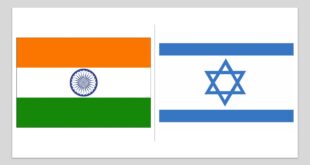Why in NEWS
Japanese Foreign Minister Yoshimasa Hayashi will visit India later this week as part of a six-nation tour in Asia and Africa, where he plans to focus on Japan’s cooperation with the Global South and the Indo-Pacific policy unveiled by Japanese Prime Minister Fumio Kishida during his visit in March.
He will discuss bilateral ties, as well as continue efforts to coordinate priorities of Japan’s Presidency of the G-7 with India’s Presidency of the G-20.
Strengthen relations
“In addition, the Government of Japan intends to further strengthen relations with the countries of South West Asia and Africa toward the realisation of a ‘free and open Indo-Pacific’, and we would like to hold discussions with these countries from this perspective,” he added.
In the Indo-Pacific policy address Mr. Kishida made in Delhi, he had emphasised a special focus on South Asia, including assisting Sri Lanka’s debt restructuring process in a “fair and transparent” manner, as well touting Japanese cooperation with India and Bangladesh for the Bay of Bengal-Northeast India “industrial value chain concept” to foster growth in the region.
Mr. Hayashi’s visit to India, Sri Lanka and the Maldives is expected to focus on development initiatives undertaken by Japan in the region. His visit to Africa will also look at projects under consideration, while his visit to South Africa, which comes a month before the BRICS summit of emerging economies there, is expected to see significant announcements.
India Japan Relationship
India-Japan relations are close and multifaceted. The two countries share a common interest in maintaining peace and stability in the Indo-Pacific region, and they have been working together to promote economic development and cooperation.
India and Japan have a long history of contact, dating back to the 7th century CE. The two countries have also been strategic partners since the early 2000s. In 2000, they established a “Global Partnership” that was upgraded to a “Strategic and Global Partnership” in 2006. In 2014, the relationship was further elevated to a “Special Strategic and Global Partnership.”
The two countries have a strong economic relationship. Japan is India’s largest bilateral donor, and it has invested heavily in India’s infrastructure and manufacturing sectors. India is also a major market for Japanese goods and services.
In recent years, India and Japan have also been working together to promote security and stability in the Indo-Pacific region. They are both members of the Quadrilateral Security Dialogue, along with the United States and Australia. The Quadrilateral is a strategic dialogue aimed at promoting a free and open Indo-Pacific.
India and Japan have also been working together to address common challenges, such as climate change and terrorism. They are both members of the G20, and they have been working together to promote international cooperation on these issues.
The India-Japan relationship is a key pillar of India’s foreign policy. The two countries share a common vision for the Indo-Pacific region, and they are committed to working together to promote peace, stability, and prosperity.
Here are some of the key aspects of India-Japan relations that are relevant for UPSC:
- The strategic partnership between India and Japan.
- The economic relationship between India and Japan.
- The security cooperation between India and Japan.
- The common interests of India and Japan in the Indo-Pacific region.
- The challenges facing India and Japan in the Indo-Pacific region.
 Chinmaya IAS Academy – Current Affairs Chinmaya IAS Academy – Current Affairs
Chinmaya IAS Academy – Current Affairs Chinmaya IAS Academy – Current Affairs

